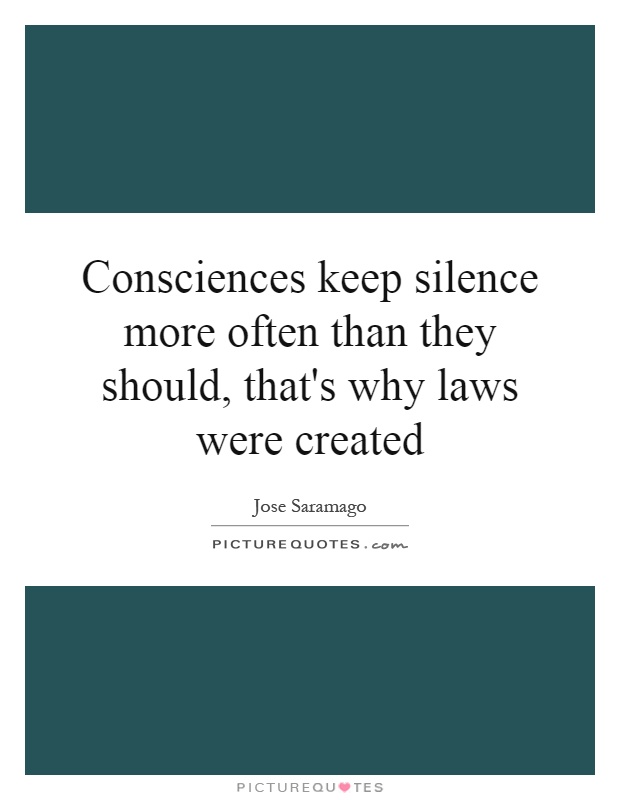Consciences keep silence more often than they should, that's why laws were created

Consciences keep silence more often than they should, that's why laws were created
In the world of Portuguese author José Saramago, the concept of conscience and its relationship to laws is a recurring theme in many of his works. Saramago's novels often explore the complexities of human morality and the consequences of individual actions on society as a whole. In his writing, Saramago delves into the idea that individuals often fail to listen to their consciences, leading to the need for laws to regulate behavior and maintain order.Saramago's belief that consciences keep silence more often than they should reflects his understanding of human nature. He recognizes that individuals are often swayed by their own desires, fears, and biases, leading them to ignore their inner moral compass. In his novel "Blindness," for example, Saramago explores the breakdown of society when a sudden epidemic of blindness strikes a city, causing its inhabitants to descend into chaos and violence. The characters in the novel are forced to confront their own moral failings and the consequences of their actions when faced with a crisis that tests their humanity.












 Friendship Quotes
Friendship Quotes Love Quotes
Love Quotes Life Quotes
Life Quotes Funny Quotes
Funny Quotes Motivational Quotes
Motivational Quotes Inspirational Quotes
Inspirational Quotes